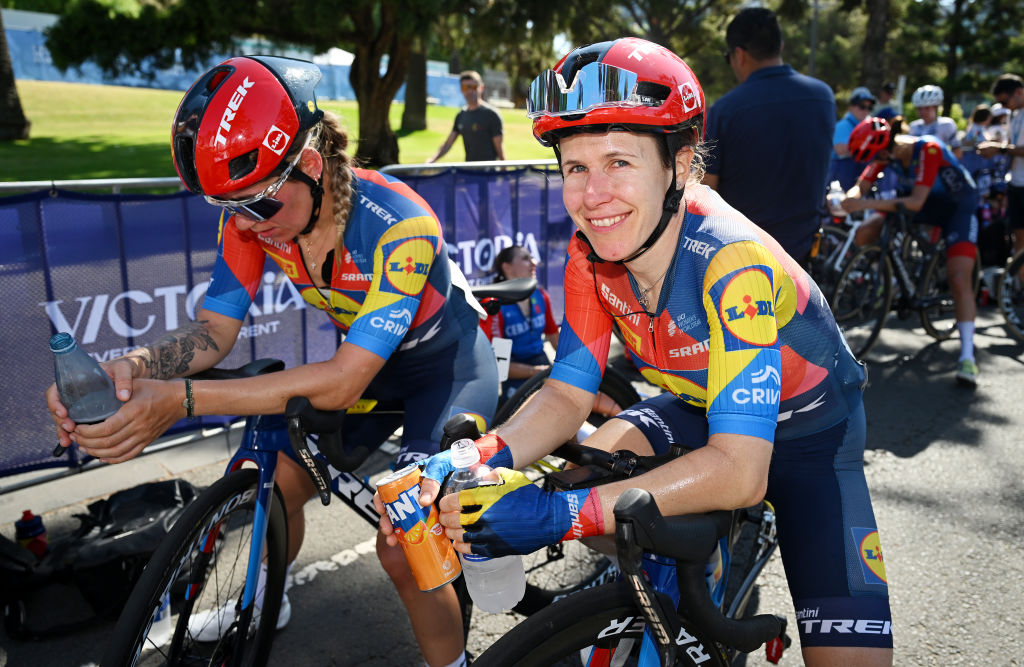Landis and Lim clash over Cycle of Lies
From Lim to Landis
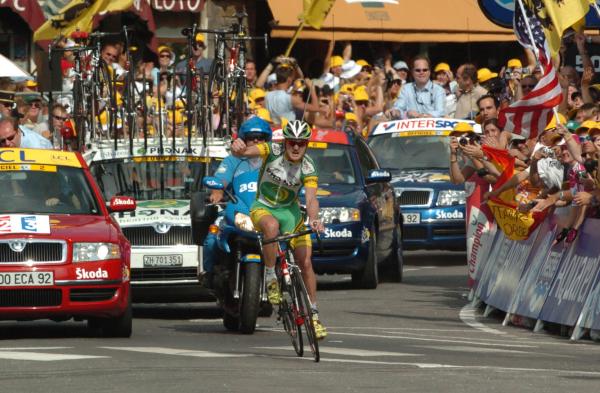
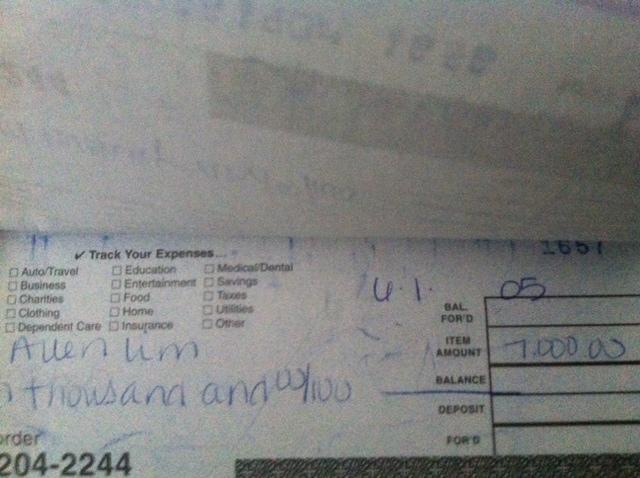
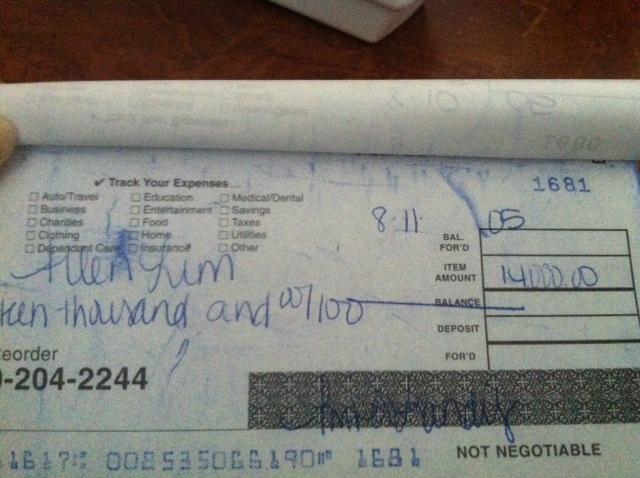
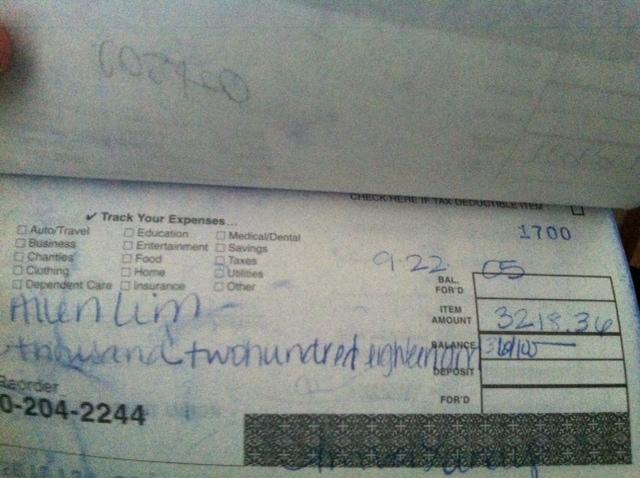
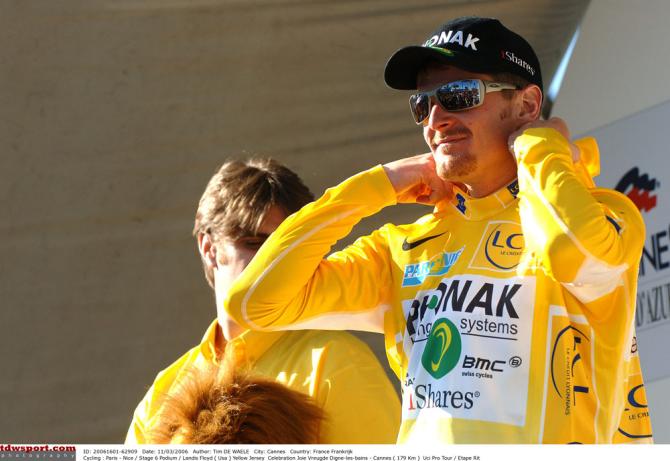
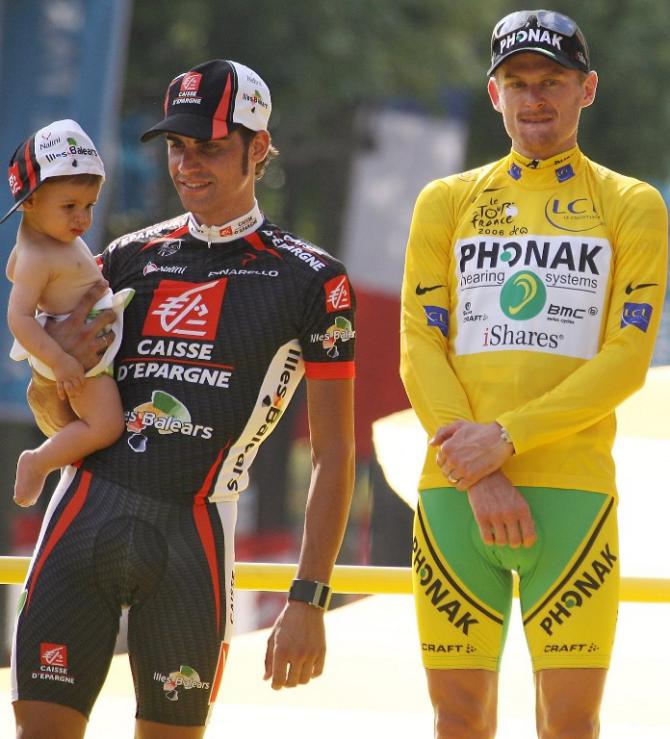
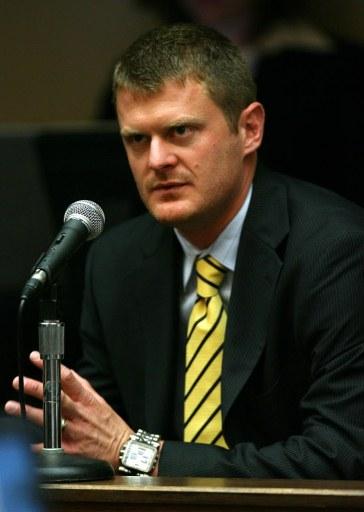
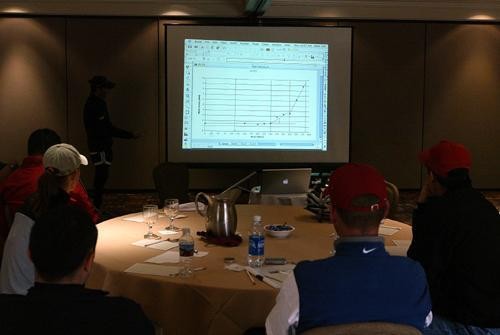
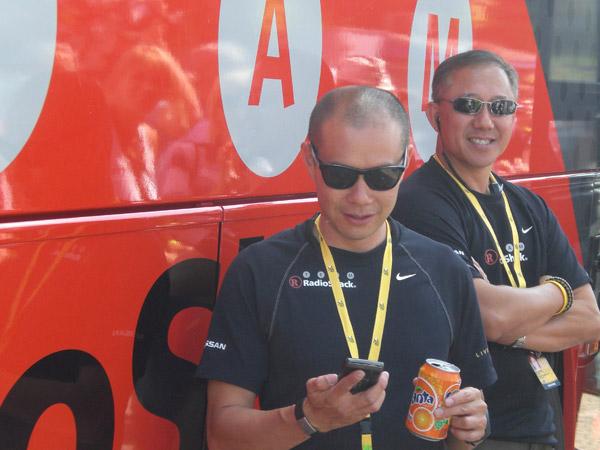
“Floyd is going to shock everyone when he hits his peak. People have no idea what's coming,” Allen Lim, Outside Magazine, June, 2006.
"Cycle of Lies", a comprehensive account of the rise and fall of Lance Armstrong, has recently been released. The book, by the New York Times’ journalist Juliet Macur, tracks the most recognised individual ever seen in professional cycling, and picks apart many of complex relationships he had: from his family, to his teammates, former competitors, journalists, and those that facilitated his doping.
There are numerous sub-plots and stories that take place on the periphery of Armstrong’s tale, with many of them delicately integrated into Macur’s work. One such story is the relationship between Floyd Landis and his former trainer Allen Lim. Armstrong, of course, rode with Landis at US Postal and would later pick Lim as one of his coaches during his comeback.
Macur spent time with Lim during the process of writing her book and it contains a number of revelations and previously unknown material, however Landis refused to cooperate in full, only answering a handful of questions via email. It meant that the book lacked Landis’ version of events, resulting in an unfortunate position for those concerned regarding the relationship between Landis and Lim.
Lim and Landis began working together in 2005, just after Landis had left US Postal in search of a leadership role of his own. After initial negotiations with several teams including Rabobank and QuickStep, the American signed for the Phonak team. Owned by BMC’s current owner Andy Rihs, the squad had lost Tyler Hamilton in the fall of 2004 after the rider had failed a test for blood doping. On the lookout for a new leader they snapped up Landis, offering him a substantial pay raise and the assurances that they would back him in his quest for the Tour.
Lim was brought into the fold in January and by May, according to Macur’s book, the pair re-convened in Girona, Spain.
“As a cycling fan, I hoped, like most fans, that the cyclists I admired were clean,” Lim told Cyclingnews via email.
The latest race content, interviews, features, reviews and expert buying guides, direct to your inbox!
“My naive optimism, however, was shattered when I found myself, for a brief time, working with Floyd. Ultimately, that trauma gave me the motivation and courage to work to make a difference - to make sure that the hell of that period of time would never be an option for the next generation of riders and staff.”
Landis’s recollections of events are somewhat different.
“I hired Allen because he'd been introduced to me as an educated cycling enthusiast who wanted to get into working with pro teams. Whether he knew specifics about doping or not doesn't matter, he was certainly fully aware of what he was getting into.”
If Lim was not utterly aware of the lengths riders would go to in order to dope he was given a rude awakening when Landis and he travelled to Valencia, a 275-mile journey from Girona. Lim asserts that he believed the trip was for a general health check-up, but in fact the rider was visiting Luis del Moral, the former US Postal doctor, in order to have his blood withdrawn for a further transfusion.
“Allen knew full well why I was going to Valencia and never made any attempt to convince me to try to race clean.”
According to the book Lim was only told the true reason for the Valencia trip once Landis returned to the car in which Lim had waiting for over an hour.
“Floyd has his time lines confused,” Lim told Cyclingnews.
“He told me going there that he had a check-up, then revealed the truth on the way back.”
Who carried the drugs?
Without doubt the biggest difference in opinions centres around the transportation of drugs during the 2005 Tour de France, a race in which Landis finished inside the top ten but failed to challenge for the coveted yellow jersey.
“Lim carried my doping supplies and delivered them to me through the 2005 Tour,” Landis told Cyclingnews.
“If he'd been against it as he claims and wanted to stop me all he'd have to have done is simply discard them. Not once did he fail to deliver what I needed.”
Lim, who is keen to put the past behind him, hit back. “I absolutely dispute Floyd's statement. And I'd be hard pressed to believe that Floyd remembers many of the details of what occurred in 2005, especially with respect to how he treated or viewed me. What I experienced with Floyd was fear, abuse, and trauma - all of which transformed me in a profound way. But this is where the bullying stops. It's time to move on.”
Check your mentality
Lim also had concerns over the mental happiness and health of the rider he was helping to secure Tour de France glory. He confided in Prentice Steffen that he thought Landis was crazy. According to the book Steffen told Lim that Mercury staff - a team for which Landis rode before Postal and at which Steffen worked - had a pool rolling as to when Landis would commit suicide.
“I can only speculate as to why Lim would claim to be able to diagnose my alleged mental disorder,” Landis told Cyclingnews after reading the book.
“I can certainly say that if he really believed me to be suicidal he did not deal with it as even the least of my friends would have.”
Cyclingnews contacted Steffen directly. The physician who now works for Garmin-Sharp has worked hard in order to promote and ensure clean sport. He led the charge for a no needle policy within professional cycling, and has recently called on the MPCC and WADA to ban substances tramadol and xenon gas, which are arguably unethical rather than illegal. Via his team, Steffen released a statement.
"That did not come from me, nor is it anything I ever heard about,” Steffen said in relation to the suicide wager.
“Like many others, I was very concerned about Floyd; I liked and cared about him. During my time working with Floyd on the Mercury team, we were close and, except for the financial times at the end in 2001, he seemed happy. As his team doctor, his mental and physical well-being were important to me.
“And later, after his troubles following the 2006 Tour and the suicide of his friend, I reached out to Allen Lim to check on Floyd because I was very worried about him.
"I did not say, nor have I ever heard, anything about that statement. Mental health is something that I, as a physician, take incredibly seriously and would never make light of. My work apart from Sports Medicine is Emergency Medicine where I help manage patients with acute and chronic mental illness. I see its effects every day and take it very seriously.”
When asked about his recollection of the same events Lim replied: “Based on my memory from nine years ago, this is what I recall from Prentice - that he had heard riders joke about if and when Floyd would ever kill himself. I recall, however, many of these type of stories about Floyd that circulated through the peloton and if I wrongly associated Prentice with that memory, then I apologize to Prentice. What is without question is the fact that Prentice extended a great deal of support to me when I first shared my concerns to him about Floyd.”
Landis has shied away from the majority of media requests he has received in recent years. Since exposing the drug culture that ran through his career and the peloton he has struggled to come to terms with what he perceives as a hypocritical and self-serving clique.
So why not cooperate with Macur? Plenty of his former teammates, even his foe Lance Armstrong, agreed to be interviewed.
“Juliet asked me a few fact checking questions but not a single one regarding the assertions of Allen Lim,” he told Cyclingnews.
“There have been a lot of half truths told in this story but Lim's version of the story veers so far from reality that it's hard to find any facts at all save for his name being Allen.
“I can only speak to the parts of the book that include me, and those appear to be mainly fabrications. Hopefully the rest of the book is more factual but I don't know.”
The state of cycling
Landis and Lim have not talked in several years and it’s unlikely that the situation will change anytime soon. Lim, who has worked with a number of riders since Landis, including Armstrong and riders at Garmin, is keen to look forward and work towards a cleaner cycling. He is also the founder of Skratch Labs.
“I'm proud of the part I played to change the sport of cycling for the better. I'm proud of my time with TIAA-CREF, Slipstream, Garmin, and even the hope and perspective I brought to Lance and RadioShack that we are all better clean,” he told Cyclingnews.
“I truly believe that, at least for American cyclists, the sport is healthier than when I found it. We can mourn and perseverate the past ad nauseam or we can keep moving forward. At this point, I choose to move forward - to continue to make tomorrow better and to help make sure these same mistakes are not repeated again. I just hope that rather than hate, judge, or feel cheated, that our community will choose to do the same - to move forward without forgetting and to ride, not for greed or fame, but for the unbridled joy and love that the simple act of cycling brings us.”
The book also highlights a discrepancy in relation to the payments Landis made to Lim. In 2012 Lim told VeloNews that during their two year collaboration that “Floyd did not pay me a salary in 2005 or in 2006, though he did take care of miscellaneous expenses when we were together (hotel, some meals, travel expenses, no more than 3k for those two years). Floyd did not employ me.”
In the book Lim changes his story, saying that a cheque was sent to him in the total of $7,000 by Landis’s then wife. He admits he cashed the money but Landis told Cyclingnews – after Lim agreed to answer a batch of questions - that he paid Lim over $80,000 during their work together. Lim said in his original email that he would not answer any further questions, and asked Cyclingnews to respect that decision.
A payment between Floyd Landis and Allen Lim
Landis follows the news, occasionally watches races, but has severe reservations as to whether the sport is moving in the right direction. Part of that stems from the fact that he was vilified for so long by both riders questioning his motives for coming clean and by the former heads of the UCI who took legal action against him.
“One thing can be said for certain; cycling has some unfortunate spokespeople and no corporation with a board of directors worth their weight in salt would put their name on a Pro Tour team,” Landis told Cyclingnews when asked about the state the sport currently finds itself in.
While cycling has certainly done far more than most sports to battle against drug abuse, Landis highlights what he sees as the contradictions and hypocrisy within the sport.
"Take Bradley Wiggins for example, and his claim that he thought Lance Armstrong was clean up until the reasoned decision. I do have a little sympathy for him. While he's not particularly bright or articulate, if you read between his curse words it's clear that he has insecurities resulting from the fact that despite all the measures he took to win the Tour he wasn't even the strongest rider.
"Look, for example, at the arguments that were made a few years ago by Jonathan Vaughters. The claim was that the reduced watts/kg which were in the neighbourhood of 6.0 were the proof of clean. If this were true, one has to question whether the current watts/kg of 6.5 and above are proof of doping."
Daniel Benson was the Editor in Chief at Cyclingnews.com between 2008 and 2022. Based in the UK, he joined the Cyclingnews team in 2008 as the site's first UK-based Managing Editor. In that time, he reported on over a dozen editions of the Tour de France, several World Championships, the Tour Down Under, Spring Classics, and the London 2012 Olympic Games. With the help of the excellent editorial team, he ran the coverage on Cyclingnews and has interviewed leading figures in the sport including UCI Presidents and Tour de France winners.

